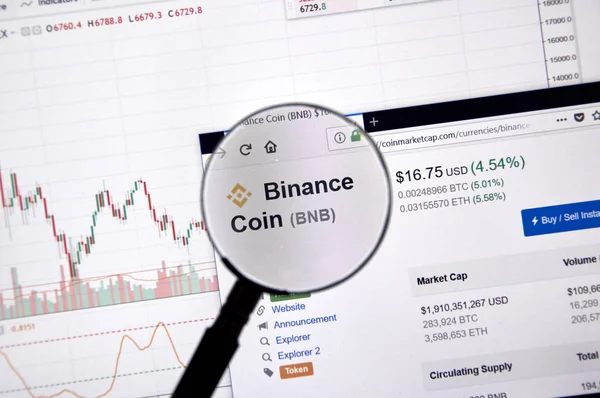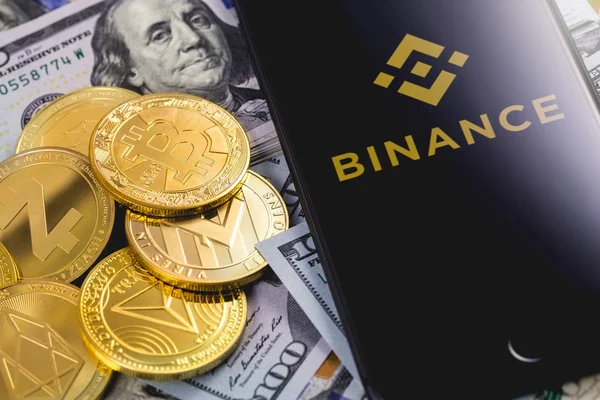Understanding Binance’s Global Presence and U.S. Regulations

Binance, founded in 2017, quickly rose to prominence as one of the world’s largest cryptocurrency exchanges. With a vast array of trading pairs and services, it has attracted millions of users globally. However, its expansion into various markets has not come without challenges, particularly in the United States, where regulatory frameworks differ significantly from those in other jurisdictions.
The U.S. has one of the most complex regulatory environments for cryptocurrencies, with various federal and state authorities imposing different guidelines. The Securities and Exchange Commission (SEC), the Commodity Futures Trading Commission (CFTC), and the Financial Crimes Enforcement Network (FinCEN) are among the key players overseeing cryptocurrency activities. Their primary concerns revolve around investor protection, market integrity, and combating money laundering.
In addition to federal regulations, individual states have established their own rules regarding cryptocurrency exchanges. For instance, New York’s BitLicense framework requires platforms to obtain a license to operate, which many exchanges, including Binance, found cumbersome. Consequently, navigating this regulatory maze poses significant challenges for crypto platforms aiming to operate in the U.S. market.
This fragmented regulatory landscape has prompted several exchanges to restrict their services or even exit the U.S. market altogether. Binance’s case is particularly notable, as it had to adapt its operations to comply with U.S. regulations, leading to the establishment of Binance.US. This spin-off aimed to provide a compliant trading platform tailored specifically for American users.
Despite these adaptations, Binance’s global reach remains expansive, with trading operations available in numerous countries. Its ability to serve customers in regions with more favorable regulations has been a major factor in its sustained growth. Nevertheless, the U.S. market represents a colossal opportunity, making compliance vital for future success.
As the regulatory environment continues to evolve, Binance’s global presence may face increasing scrutiny from U.S. regulators. Understanding these dynamics is crucial for users and investors who wish to engage with the platform.
The Status of Binance Operations in the United States

Binance initially entered the U.S. market by allowing American users to access its global platform. However, as regulatory pressures mounted, it became apparent that this model was not sustainable. In response, Binance launched Binance.US in September 2019, a separate entity designed to comply with U.S. regulations and cater specifically to American users.
Binance.US operates under the purview of the Financial Crimes Enforcement Network (FinCEN) and adheres to the regulations set forth by the SEC and various state regulatory bodies. The exchange offers a limited selection of cryptocurrencies compared to its global counterpart, with a focus on those deemed compliant with U.S. regulations. The platform aims to strike a balance between providing a robust trading experience while adhering to local laws.
Despite its intentions to comply with U.S. regulations, the road has been rocky. Users have reported challenges, including limited access to certain trading pairs, higher fees compared to other exchanges, and a more complicated verification process. Additionally, Binance.US has faced its share of legal scrutiny, impacting user trust and engagement.
As of now, Binance.US remains operational, but it doesn’t provide the same breadth of services as the global Binance platform. Users can trade popular cryptocurrencies such as Bitcoin, Ethereum, and Litecoin. However, the platform does not support many altcoins that are available internationally, limiting options for traders looking to diversify their portfolios.
To summarize, Binance’s operations in the U.S. are functional but constrained. The need for regulatory compliance has necessitated a more conservative approach, which may not satisfy all users. As the cryptocurrency landscape evolves, Binance.US will need to continuously adapt to maintain relevance in a competitive market.
It is essential for potential users to stay informed about the services offered by Binance.US, as well as any changes in regulatory attitudes that could affect the platform’s availability and offerings in the future.
Legal Challenges Faced by Binance in the U.S. Market

Binance has faced a series of legal hurdles in the U.S. that have significantly influenced its operations. One of the most pressing issues has been the lack of a clear regulatory framework for cryptocurrency exchanges, making it difficult for platforms like Binance to maintain compliance. In 2021, the SEC and CFTC began intensifying scrutiny of crypto exchanges, focusing on issues related to securities, trading practices, and user protections.
In particular, the SEC’s stance has been that many cryptocurrencies listed on exchanges might qualify as securities, which would necessitate registration and compliance with established securities laws. Binance’s global platform has faced accusations of allowing U.S. residents to trade such securities without proper licensing, raising concerns that the exchange was operating illegally in the country.
Furthermore, Binance’s practices have drawn the attention of various state regulators. Some states have issued warnings or taken legal action against the exchange for operating without proper licenses. This patchwork of state-level regulations has complicated matters, forcing Binance to navigate a labyrinth of rules that differ from state to state.
Legal challenges have also affected Binance’s partnerships with traditional financial institutions. Banks and payment processors are increasingly cautious about associating with cryptocurrency exchanges due to the potential for legal repercussions. As a result, Binance has faced difficulties in establishing reliable channels for fiat transactions, impacting the user experience.
The cumulative effect of these legal challenges has led to a decrease in U.S. user trust. Many potential customers are wary of using a platform that is under scrutiny from regulatory bodies. To regain this trust, Binance will need to demonstrate a commitment to compliance and transparency.
Ultimately, the landscape for cryptocurrency exchanges in the U.S. remains fraught with uncertainty. With ongoing investigations and evolving regulations, Binance will have to adopt a proactive approach to overcome these legal challenges if it wishes to succeed in the American market.
Alternatives for U.S. Users Seeking Binance-like Platforms

Given the regulatory challenges faced by Binance in the U.S., many users are exploring alternative platforms that offer similar features. Several exchanges provide a competitive trading experience while ensuring compliance with U.S. regulations, making them suitable options for American traders.
- Coinbase: As one of the most well-known U.S.-based exchanges, Coinbase provides a user-friendly platform for buying, selling, and trading a diverse range of cryptocurrencies. It offers educational resources and a secure environment for new users, along with advanced trading options for experienced investors.
- Kraken: Known for its strong security measures, Kraken is another popular U.S.-based exchange. It provides a wide variety of cryptocurrencies and trading pairs, as well as futures and margin trading options. Kraken is also recognized for its robust customer service and compliance with U.S. regulations.
- Gemini: Founded by the Winklevoss twins, Gemini emphasizes regulatory compliance and security. The exchange is licensed and regulated in New York, offering a secure platform for trading various cryptocurrencies. Its user-friendly design and educational resources make it appealing to beginners.
| Feature | Binance.US | Coinbase | Kraken | Gemini |
|---|---|---|---|---|
| Number of Coins | Limited | Extensive | Extensive | Moderate |
| Trading Fees | Variable | Competitive | Competitive | Fixed |
| Regulatory Status | Compliant | Compliant | Compliant | Compliant |
While these platforms may not offer the same extensive range of cryptocurrencies as Binance, they do provide a safer and more compliant environment for U.S. users. Each platform has its unique strengths, so users should assess their trading needs when choosing an exchange.
Additionally, decentralized exchanges (DEXs) are gaining popularity among crypto enthusiasts seeking more privacy and autonomy in their trades. Platforms like Uniswap and SushiSwap allow users to trade directly from their wallets without centralized control, though they come with their own set of risks and challenges.
Ultimately, U.S. users looking for Binance-like experiences have several viable alternatives. With the right research and consideration, they can find platforms that meet their trading preferences while adhering to legal requirements.
The Future of Binance and Its U.S. Regulatory Environment

The future of Binance in the U.S. hinges on its ability to navigate a challenging regulatory landscape. As financial authorities increasingly scrutinize cryptocurrency operations, the exchange must adapt its strategies to comply with evolving laws. The establishment of Binance.US was a step toward achieving this goal, but ongoing legal challenges remain a significant concern.
Regulatory clarity is essential for Binance and other crypto exchanges. The U.S. government is currently working to establish comprehensive regulations for the industry. While this presents challenges, it also offers opportunities for Binance to solidify its position as a compliant and trusted platform for American users. If the regulatory framework becomes more predictable and streamlined, it could help Binance regain user trust and market share.
Moreover, the public perception of cryptocurrency exchanges as a whole is evolving. As more investors turn to digital assets, the demand for secure and compliant trading platforms is likely to grow. Binance’s reputation as a leading exchange can work to its advantage, provided it addresses regulatory concerns effectively.
Future collaborations with regulatory agencies could prove beneficial for Binance. Building relationships with government entities may allow for more open dialogue about compliance and best practices in the industry. Additionally, increased transparency in its operations could help mitigate some of the negative perceptions that have arisen from past legal challenges.
The global cryptocurrency market continues to grow, and Binance’s international presence positions it well for potential expansion in other regions. However, this growth should not come at the expense of U.S. compliance. Striking a balance between operational expansion and regulatory adherence will be crucial for the company’s long-term success.
In summary, the future of Binance in the U.S. will largely depend on its ability to meet regulatory requirements while maintaining its competitive edge. As the landscape evolves, ongoing adaptability will be vital for securing its place in the American market.
Expert Opinions on Binance’s Viability in the U.S. Market

Experts in the cryptocurrency and financial sectors have varied opinions on Binance’s viability in the U.S. market. Many agree that the exchange possesses tremendous potential due to its substantial user base and innovative offerings. However, the prevailing consensus is that regulatory











I use Coinbase instead of Binance because of the legal issues mentioned. It’s more straightforward here in the US.
Kraken and Gemini are mentioned as alternatives, which is helpful information for those looking for reliable platforms.
Wow, I didn’t realize how complex the regulatory environment in the US is for crypto exchanges like Binance.
Insightful thoughts on Binance’s future! They need to balance expansion with regulation adherence to succeed in the US market.
Good to know about Binance.US. It seems like compliance is a big challenge for them.
“Binance’s need for compliance” sums up their situation well. I hope they find a way to improve their US operations.
Interesting read about Binance’s struggle with US regulations. Didn’t know they had to create a separate entity for American users!
Thanks for explaining why Binance has limited services in the US. The regulatory stuff sounds tough!
Decentralized exchanges like Uniswap seem interesting but come with their own risks as noted. Good comparison overall!
‘Legal hurdles’ and ‘lack of framework’ are phrases that stood out to me. It’s clear why Binance faces so many challenges here.